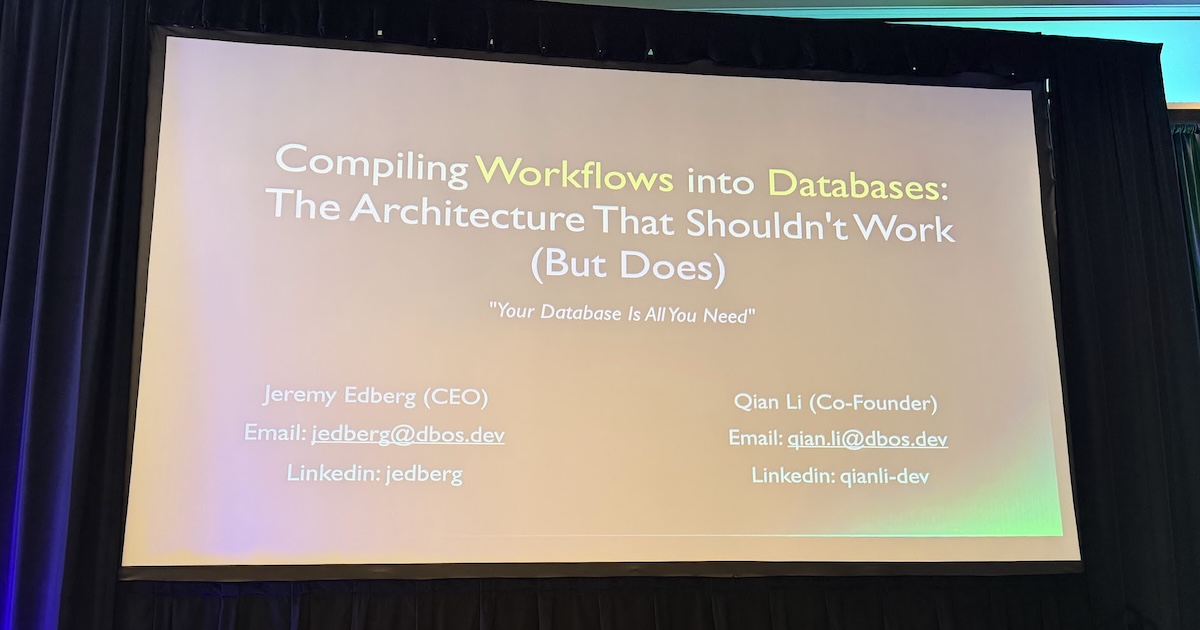
"According to the speakers, modern applications routinely write workflows, but current solutions struggle with fundamental challenges. Failures occur frequently, existing orchestration tools lack adequate visibility into what's happening, and coordination logic becomes scattered across multiple systems. "Your database is all you need," Li noted, pointing to the reality that most teams already have most of the infrastructure to implement workflow support themselves, given an application-level "workflow wrapper" library."
"The library relies on a checkpoint system. Before executing any workflow step, the system records the input to the database, and after each step execution, it checkpoints the output. When interruptions occur, workflows can resume from the last successful checkpoint rather than restarting from scratch. This approach leverages PostgreSQL's ACID properties to guarantee exactly-once execution semantics without requiring separate orchestration infrastructure."
Workflows in distributed systems often fail, recovery processes are complex, and visibility into workflow state is limited. Many teams already possess necessary infrastructure to implement workflow support within the application. DBOS Transact inverts the traditional architecture by translating workflows directly into database operations and using PostgreSQL as the orchestration layer. The open-source Transact library (MIT) supports Python, TypeScript, Go, and Java. The library records inputs before each step and checkpoints outputs after each execution so interrupted workflows resume from the last successful checkpoint. This leverages PostgreSQL ACID guarantees to deliver exactly-once execution semantics and reduces the need for separate orchestration infrastructure.
Read at InfoQ
Unable to calculate read time
Collection
[
|
...
]